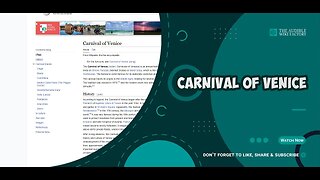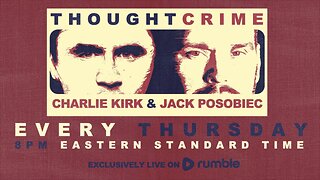Saint Patrick's Day, or the Feast of Saint Patrick, is a religious and cultural holiday held on
Saint Patrick's Day, or the Feast of Saint Patrick, is a religious and cultural holiday held on 17 March, the traditional death date of Saint Patrick (c. 385 – c. 461), the foremost patron saint of Ireland.
Saint Patrick's Day was made an official Christian feast day in the early 17th century and is observed by the Catholic Church, the Anglican Communion (especially the Church of Ireland), the Eastern Orthodox Church, and the Lutheran Church. The day commemorates Saint Patrick and the arrival of Christianity in Ireland, and, by extension, celebrates the heritage and culture of the Irish in general. Celebrations generally involve public parades and festivals, céilithe, and the wearing of green attire or shamrocks. Christians who belong to liturgical denominations also attend church services and historically the Lenten restrictions on eating and drinking alcohol were lifted for the day, which has encouraged and propagated the holiday's tradition of alcohol consumption.
Saint Patrick's Day is a public holiday in the Republic of Ireland, Northern Ireland, the Canadian province of Newfoundland and Labrador (for provincial government employees), and the British Overseas Territory of Montserrat. It is also widely celebrated in the United Kingdom, Canada, United States, Argentina, Australia, South Africa, and New Zealand, especially amongst Irish diaspora. Saint Patrick's Day is celebrated in more countries than any other national festival. Modern celebrations have been greatly influenced by those of the Irish diaspora, particularly those that developed in North America. However, there has been criticism of Saint Patrick's Day celebrations for having become too commercialised and for fostering negative stereotypes of the Irish people.
SAINT PATRICK
Saint Patrick was a 5th-century Romano-British Christian missionary and Bishop in Ireland. Much of what is known about Saint Patrick comes from the Declaration, which was allegedly written by Patrick himself. It is believed that he was born in Roman Britain in the fourth century, into a wealthy Romano-British family. His father was a deacon and his grandfather was a priest in the Christian church. According to the Declaration, at the age of sixteen, he was kidnapped by Irish raiders and taken as a slave to Gaelic Ireland. It says that he spent six years there working as a shepherd and that during this time he found God. The Declaration says that God told Patrick to flee to the coast, where a ship would be waiting to take him home. After making his way home, Patrick went on to become a priest.
According to tradition, Patrick returned to Ireland to convert the pagan Irish to Christianity. The Declaration says that he spent many years evangelising in the northern half of Ireland and converted thousands.
Patrick's efforts were eventually turned into an allegory in which he drove "snakes", heathen practices, out of Ireland, despite the fact that actual snakes were not known to inhabit the region.
Tradition holds that he died on 17 March and was buried at Downpatrick. Over the following centuries, many legends grew up around Patrick and he became Ireland's foremost saint.
CELEBRATION AND TRADITIONS
Today's Saint Patrick's Day celebrations have been greatly influenced by those that developed among the Irish diaspora, especially in North America. Until the late 20th century, Saint Patrick's Day was often a bigger celebration among the diaspora than it was in Ireland.
Celebrations generally involve public parades and festivals, Irish traditional music sessions (céilithe), and the wearing of green attire or shamrocks. There are also formal gatherings such as banquets and dances, although these were more common in the past. Saint Patrick's Day parades began in North America in the 18th century...
LINK TO ARTICLE: http://en.wikipedia.org/wiki/Saint_Patrick's_Day
TAGS: Saint Patrick's Day, Patronal festivals in Ireland, British flag flying days, Anglican saints, Spring (season) events in the Republic of Ireland, Public holidays in the United States, Saints days, Public holidays in the Republic of Ireland, Public holidays in Mexico, Public holidays in Canada, Parades, Observances in Australia, National days, March observances, Irish-New Zealand culture, Irish-Canadian culture, Irish-Australian culture, Irish-American culture, Irish folklore, Irish culture, Festivals in Ireland, Catholic Church in the United States, Catholic holy days, 1903 establishments in Ireland, 1783 establishments in Ireland, Saint Patrick, Saint Patrick's Day
#GeneralKnowledge #AudibleWikiFactory #Audible #Wikipedia #SaintPatrick'sDay
-
 13:12
13:12
The Audible Wiki Factory
1 year agoThe Carnival of Venice is an annual festival held in Venice, Italy. The carnival ends on Shrove
423 -

Alex Zedra
5 hours agoLIVE! Gaming on Rumble! WOOT
27.8K13 -
 39:16
39:16
Bob Menery
2 days agoBob Menery & Ryan Garcia talk about PED allegations, Connor McGregor and Awkward Topics
74.9K17 -
 1:05:27
1:05:27
FULL SEND PODCAST
1 day agoDeion Sanders on Being Arrested, Haters in the NCAA, and Drake vs the Entire Rap Game!
43.6K4 -
 2:12:51
2:12:51
Melonie Mac
9 hours agoGo Boom Live Episode 3!
36K8 -
 1:29:47
1:29:47
Precision Rifle Network
13 hours agoRex & Joel Live S2E3
30.9K4 -
 1:03:16
1:03:16
The Anthony Rogers Show
16 hours agoEpisode 308 - Lessons from the Afterlife
26.3K2 -
 0:56
0:56
Memology 101
15 hours agoMSNBC "finds it SHOCKING" that voters believe Biden is a GREATER THREAT to democracy than Trump
35K48 -
 1:13:28
1:13:28
The Charlie Kirk Show
6 hours agoTHOUGHTCRIME Ep. 44 — Mud-Faced Millionaires? Trump Jail = Good? The Unfunny Left?
83.1K26 -
 1:53:30
1:53:30
Kim Iversen
10 hours agoBiden Confronts "Genocide Joe" Nickname, Ann Coulter Tells Vivek To His Face Only Whites Should Be President, The Great Taking w/ Chris Martenson
62.7K236